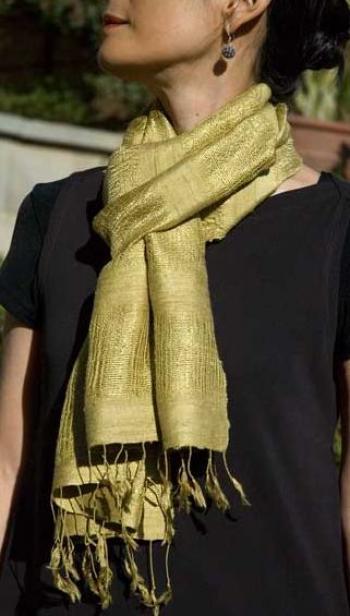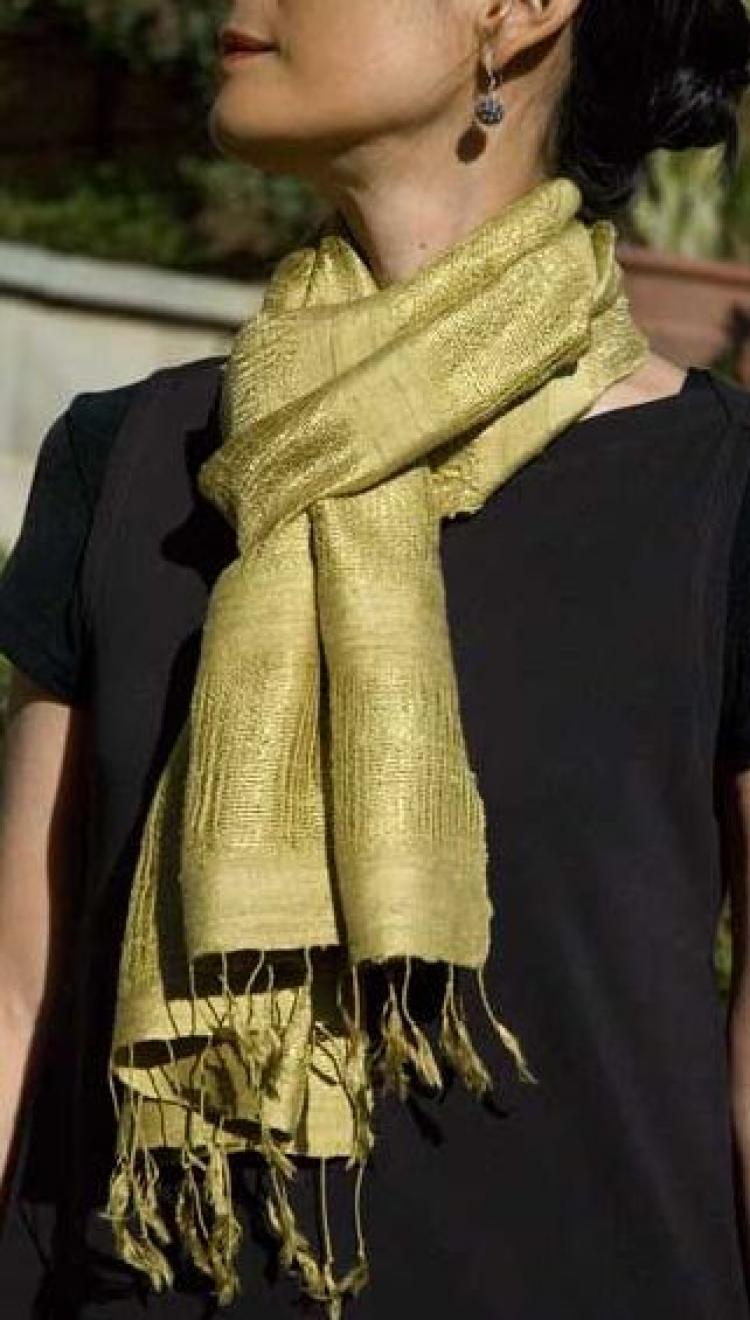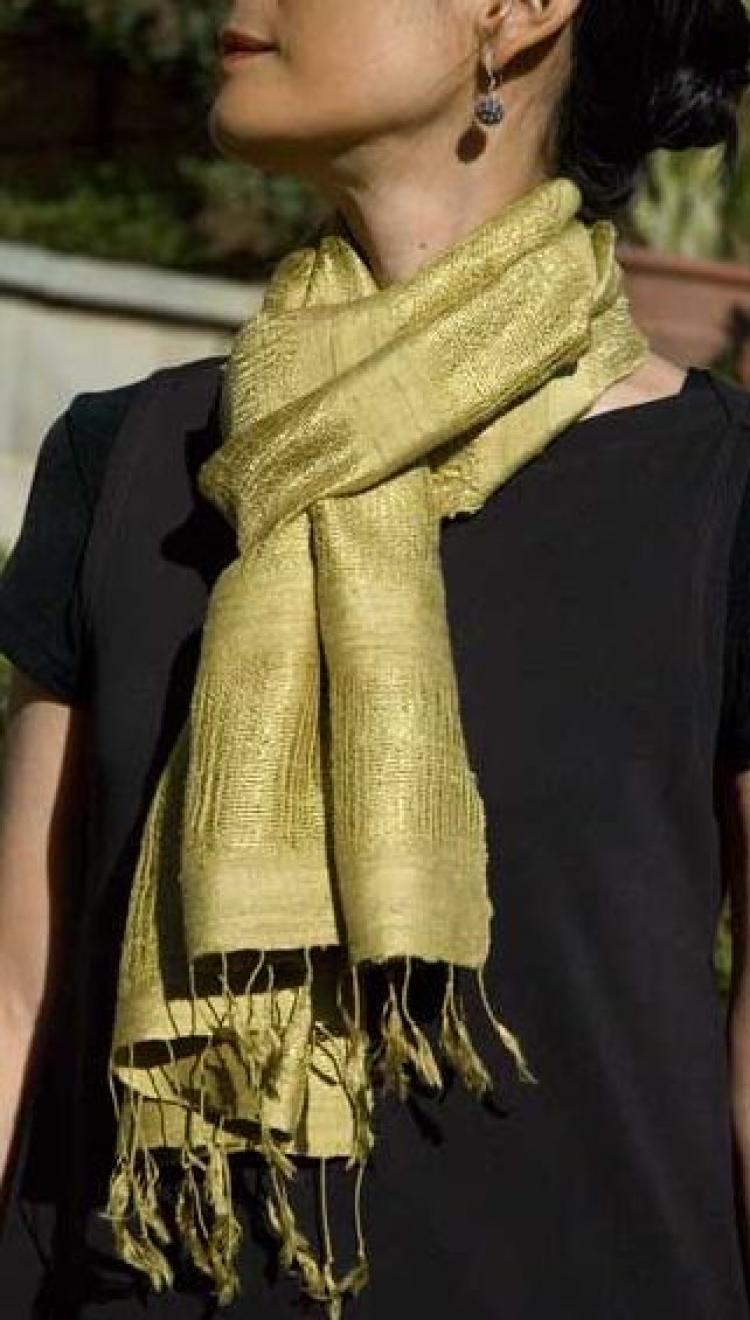Rising from the ideal of buying and wearing clothing made in a sustainable way, a Web site now offers silk goods made by women in their own villages being paid a fair price. Orijyn.com is a fair trade, eco-conscious Web site offering handcrafted silk goods from the women weavers of Laos.
The Web site also offers Lao silver jewelry made by craftsmen who produced jewelry for the Lao royal family. Revenue goes to developing craftsmen and artisans in remote villages with few opportunities for jobs.
Orijyn.com explains that the silk scarves and wraps it sells are eco-friendly, made from only natural dyes derived from seeds, leaves, roots, flowers, fruits, bark, and insects. The Lao silks are 100 percent handmade, from cultivation of the silk worms to weaving the finished piece.
With prices ranging from $50 to $100, all the proceeds from Orijyn.com go toward supporting the women weavers and a local nongovernmental organization called Saoban. Saoban offers technical tutelage, marketing guidance, and small loans to alleviate poverty in Laos and empower rural women.
Whereas before, women would have to leave their families to participate in urban silk co-ops, Saoban allows them to stay in their villages while making sustainable profit. This has given women a more unified voice at home, increased revenue for the villages, and has inspired greater respect from the men.
“Being in a group gives us a sense of solidarity,” says Ms. Noud, 25, a weaver from the None Somboun village of Laos. “We have the opportunity to learn new things from the training, and after the training we continue to meet regularly and support each other.”
Since 2005, Saoban has worked with more than 300 women weavers from rural communities in four provinces. Now the silk created by these women is available to conscientious shoppers around the world.
The Web site also offers Lao silver jewelry made by craftsmen who produced jewelry for the Lao royal family. Revenue goes to developing craftsmen and artisans in remote villages with few opportunities for jobs.
Orijyn.com explains that the silk scarves and wraps it sells are eco-friendly, made from only natural dyes derived from seeds, leaves, roots, flowers, fruits, bark, and insects. The Lao silks are 100 percent handmade, from cultivation of the silk worms to weaving the finished piece.
With prices ranging from $50 to $100, all the proceeds from Orijyn.com go toward supporting the women weavers and a local nongovernmental organization called Saoban. Saoban offers technical tutelage, marketing guidance, and small loans to alleviate poverty in Laos and empower rural women.
Whereas before, women would have to leave their families to participate in urban silk co-ops, Saoban allows them to stay in their villages while making sustainable profit. This has given women a more unified voice at home, increased revenue for the villages, and has inspired greater respect from the men.
“Being in a group gives us a sense of solidarity,” says Ms. Noud, 25, a weaver from the None Somboun village of Laos. “We have the opportunity to learn new things from the training, and after the training we continue to meet regularly and support each other.”
Since 2005, Saoban has worked with more than 300 women weavers from rural communities in four provinces. Now the silk created by these women is available to conscientious shoppers around the world.







